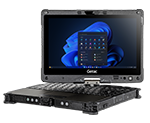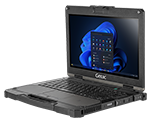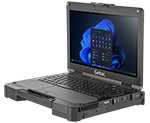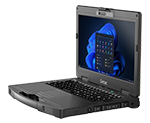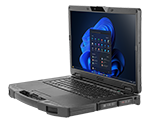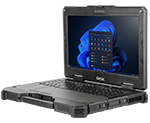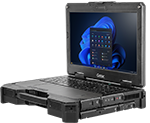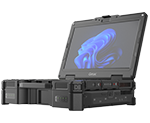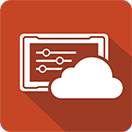Utility Asset Management | Definition, Tools & Technologies
Explore utility asset management's evolution, its technological advancements, and how solutions like Getac aid shape the future of utility industries.
Definition of Utility Asset Management
Utility Asset Management is the coordinated activity of realizing value from utility assets, which includes tangible items such as infrastructure, equipment, and technology. It involves the balancing of costs, opportunities, and risks against the desired performance of assets to achieve the organizational objectives of utilities.


Overview of Asset Management Principles and Practices
Asset management is anchored in a systematic approach that involves the management of assets over different stages of their lifecycle. This includes the initial planning, acquisition, operation, maintenance, and eventual disposal of assets.
An effective asset management program allows asset managers to make informed decisions, optimize the use of resources, and ensure that assets deliver the intended value throughout their lifecycle.
Importance of
Asset Management in the Utility Industry
In the utility industry, asset performance management is critical. This is because utilities need to ensure uninterrupted service to their customers, manage risks associated with their assets, and optimize operations to reduce costs. Efficient utility asset management can lead to improved reliability, reduced downtime, and ultimately lower costs for the company and its customers.
Operational Challenges in the Utilities Industry
The implementation of contactless solutions is now vital due to evolving industry expertise and the need for safer work practices, especially during unexpected events.
With the rise of 5G and other advanced network infrastructures, utilities have an opportunity to implement faster, more reliable data collection and management solutions, further enhancing their asset management capabilities.
Customers now demand more from utilities, expecting reliability, efficiency, and quick response to issues. Meeting these expectations is key to avoiding lost revenue and maintaining customer trust.
There's a shift towards more sustainable practices in the utilities sector, which places a focus on the integration of renewable resources, efficient equipment, and sustainable asset lifecycle management.
As the industry grapples with a shortage of skilled professionals, there's a greater emphasis on tools, systems, and technology that can streamline operations and reduce the dependency on manual labor.
Utility Asset Management Tools and Technologies

Geographic Information Systems (GIS)
GIS plays a pivotal role in utility asset management. They provide:
Spatial Data Management and Visualization
This offers a clear understanding of where assets are located and their spatial relationship to other assets.
Asset Inventory and Mapping
Utilities can maintain a comprehensive, up-to-date record of their asset base, optimizing the asset data management process.
Network Analysis and Modeling
It allows utilities to understand the performance, vulnerabilities, and efficiency of their networks.

Enterprise Asset Management (EAM) Software
EAM software supports:
Work Order Management and Scheduling
It optimizes maintenance and repair activities, ensuring that utilities efficiently manage resources.
Preventive and Predictive Maintenance
This reduces unexpected failures, extends asset lifespans, and leads to condition-based maintenance practices.
Asset Performance Tracking and Reporting
It provides insights into asset conditions and enables data-driven decision-making by asset managers.

Advanced Analytics and Decision Support Capabilities
These capabilities allow utilities to:
Perform Predictive Modeling and Optimization
Anticipate future asset performance based on historical and current data.
Assess Asset Risk
They prioritize assets for maintenance or replacement using analytics and insights developed by data scientists.
Conduct Scenario Analysis and Capital Planning
Inform investment decisions, strategic planning, and develop processes that manage risks effectively.
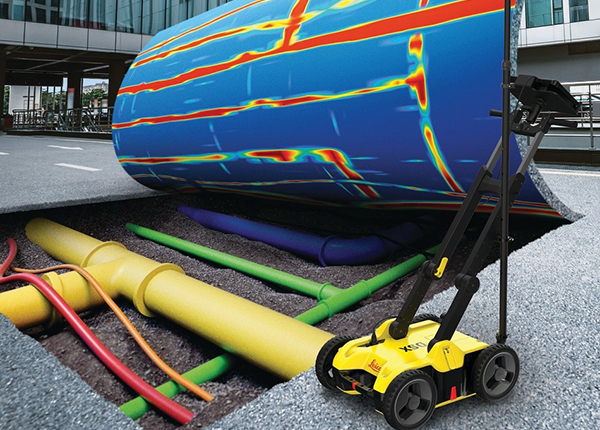
Leica Geosystems is revolutionizing underground mapping work with Getac
Remica uses Getac T800 rugged tablets to deliver their energy-savings solutions with greater efficiency

Leipziger Wasserwerke – CHOOSE THE FULLY RUGGED GETAC NOTEBOOK V110
Getac’s Utility Asset Management Solutions
Utility asset management professionals often operate in challenging environments where standard business tablets or laptops may not withstand the conditions. Getac Solutions offers rugged laptops and tablets that excel in various weather conditions and can endure impacts and drops up to six feet. These devices are manufactured and certified by international third parties to meet rigorous standards, including MIL-STD 810H and IP67.
Connectivity plays a crucial role in utility asset management, allowing professionals to access enterprise asset management (EAM) and computerized maintenance management system (CMMS) software in real-time. Getac Solutions understands the importance of connectivity and offers devices with dedicated GPS, 4G LTE, and IEEE 802.11ax Wi-Fi capabilities.
Field professionals engaged in utility asset management require reliable and long-lasting battery life to support their demanding workflows. Getac Solutions understands this need and offers devices with extended battery life, as well as options for dual batteries, hot-swap batteries, and bridge batteries.
Accurate data collection is vital. By scanning a barcode, professionals can view asset records, maintenance history, and other critical data.
Getac solutions include not only rugged tablets and laptops but also mounting kits, mobile power supplies, security and connectivity software and third-party software integrations, and other accessories. By offering a complete package, Getac Solutions delivers peace of mind to utility companies, streamlining their asset management workflows and reducing disruptions.
Additionally, the ruggedness and durability of Getac's solutions contribute to longer device lifecycles and reduced operational disruption, resulting in significant cost savings for utility companies.
Related solutions
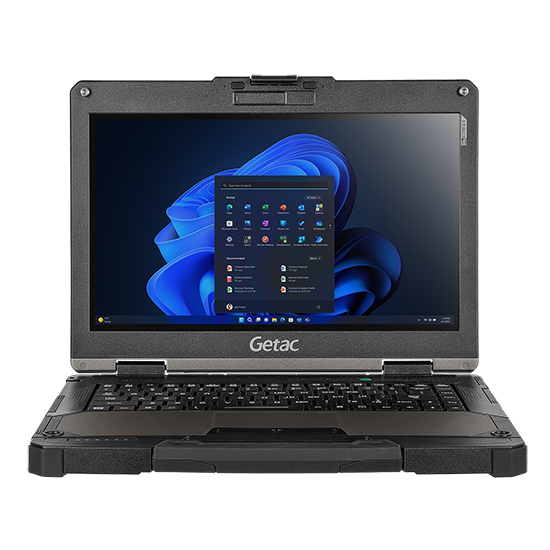
Laptops | Fully Rugged | 13.3-Inch | Windows
Getac B360
The B360 is PCMag Editor's Choice winner and Best Rugged Laptop awardee in 2023. It features a 13.3-inch FHD screen with 1,400 nits LumiBond display.
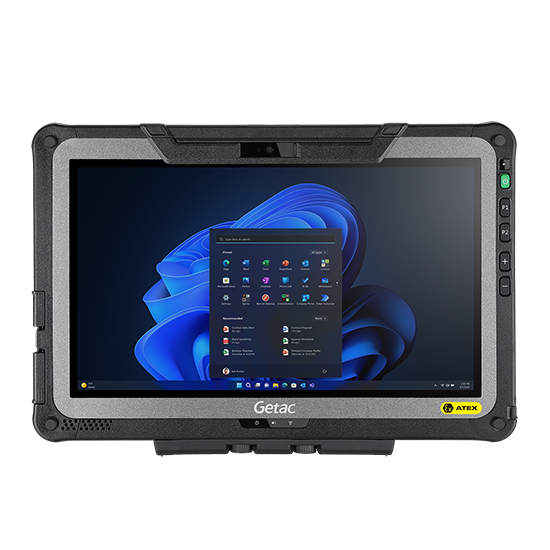
Tablets | Fully Rugged | 11.6-Inch | Windows
Getac F110-EX
The F110-EX is an ATEX-certified, 11.6-inch fully rugged tablet that brings powerful computing capabilities for Zone 2/22 hazardous environments.
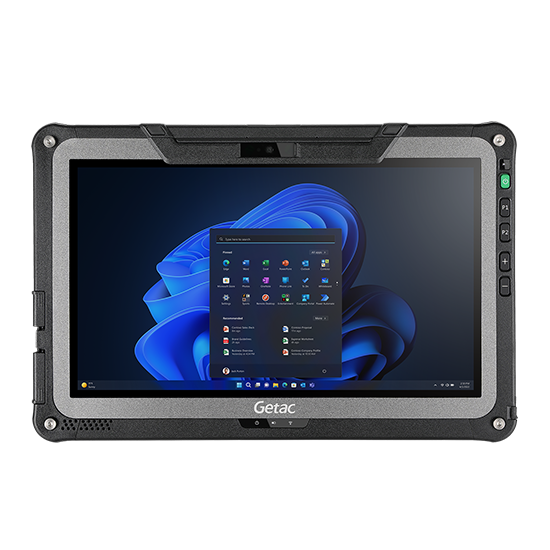
Tablets | Fully Rugged | 11.6-Inch | Windows
Getac F110
The F110 was named the Best Rugged Tablet in 2021 by ZDNet and in 2023 by TechRadar. It has a slim form factor and an 11.6-inch FHD screen.
Android Configuration at Scale
GETAC deployXpress
A cloud-based deployment, configuration, and provisioning solution that brings scalability, precision, and over-the-air convenience to Getac Android ownership.
Reducing the Risk of Device Downtime
Getac Monitoring
Monitoring helps you know which devices are optimally working, and which are not, ensuring you have the technology you need when you need it.
Reliable In-vehicle Safety On The Move
GETAC DRIVING SAFETY UTILITY
Your people are your most valuable assets. Workforce Safety for Commercial Vehicles and Forklifts - with Getac Driving Safety Utility.
Future Trends and Innovations in
Utility Asset Management

Integration of Smart Grid and IoT Technologies
The adoption of smart grid and IoT technologies is transforming utility asset management. These technologies facilitate the following:
- Real-time asset monitoring, enhancing the utility's responsiveness.
- Advanced sensor networks for data collection.
- Automated decision-making, optimizing asset management processes.

Advanced Analytics, AI, and Machine Learning
The integration of AI and machine learning into utility asset management is a key trend:
- Enhanced predictive maintenance capabilities.
- Sophisticated asset performance benchmarking.
- Data-driven capital investment planning.

Sustainable and Resilient Asset Management Practices
Sustainability and resilience are becoming central to asset management:
- Integration of renewable energy and distributed resources.
- Adoption of circular economy principles in asset design.
- Climate-resilient infrastructure planning to mitigate future risks.
Conclusion
Utility asset management remains a pivotal process in ensuring reliable and efficient service delivery in the utility industry. Companies need to embrace new technologies, methodologies, and tools to optimize their asset management processes.
Getac's Utility Asset Management Solutions showcase the importance of integrating rugged, efficient tools with real-time data capabilities to improve operations. As the industry evolves, adopting advanced analytics, sustainable practices, and innovative technologies will be vital in offering value, optimizing resources, and ensuring customer satisfaction.
Additional resources

Understanding Vegetation Management and its Impact on Utilities Sector

How Voice Recognition Software Assistive Technology Improves Efficiency and Safety

Field Services: The Case for Rugged Android

Factors Impacting the Utilities Sector Today and Tomorrow

The Future of Fieldwork Is Digital

5 Major Energy and Utilities Industry Challenges 2022

How Rugged Mobile Devices Improve Customer Service in Utilities and Field Repair

5 Things You’re Not Thinking About When Calculating TCO

